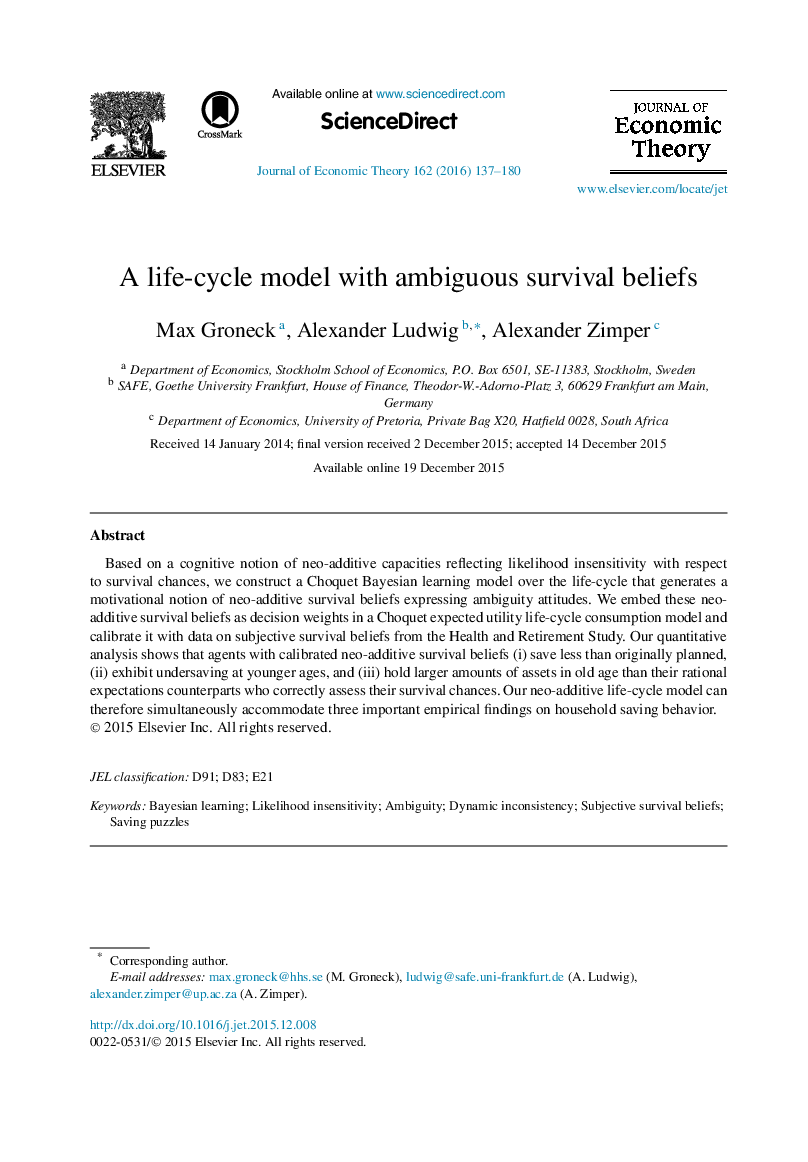| Article ID | Journal | Published Year | Pages | File Type |
|---|---|---|---|---|
| 7359509 | Journal of Economic Theory | 2016 | 44 Pages |
Abstract
Based on a cognitive notion of neo-additive capacities reflecting likelihood insensitivity with respect to survival chances, we construct a Choquet Bayesian learning model over the life-cycle that generates a motivational notion of neo-additive survival beliefs expressing ambiguity attitudes. We embed these neo-additive survival beliefs as decision weights in a Choquet expected utility life-cycle consumption model and calibrate it with data on subjective survival beliefs from the Health and Retirement Study. Our quantitative analysis shows that agents with calibrated neo-additive survival beliefs (i) save less than originally planned, (ii) exhibit undersaving at younger ages, and (iii) hold larger amounts of assets in old age than their rational expectations counterparts who correctly assess their survival chances. Our neo-additive life-cycle model can therefore simultaneously accommodate three important empirical findings on household saving behavior.
Related Topics
Social Sciences and Humanities
Economics, Econometrics and Finance
Economics and Econometrics
Authors
Max Groneck, Alexander Ludwig, Alexander Zimper,
